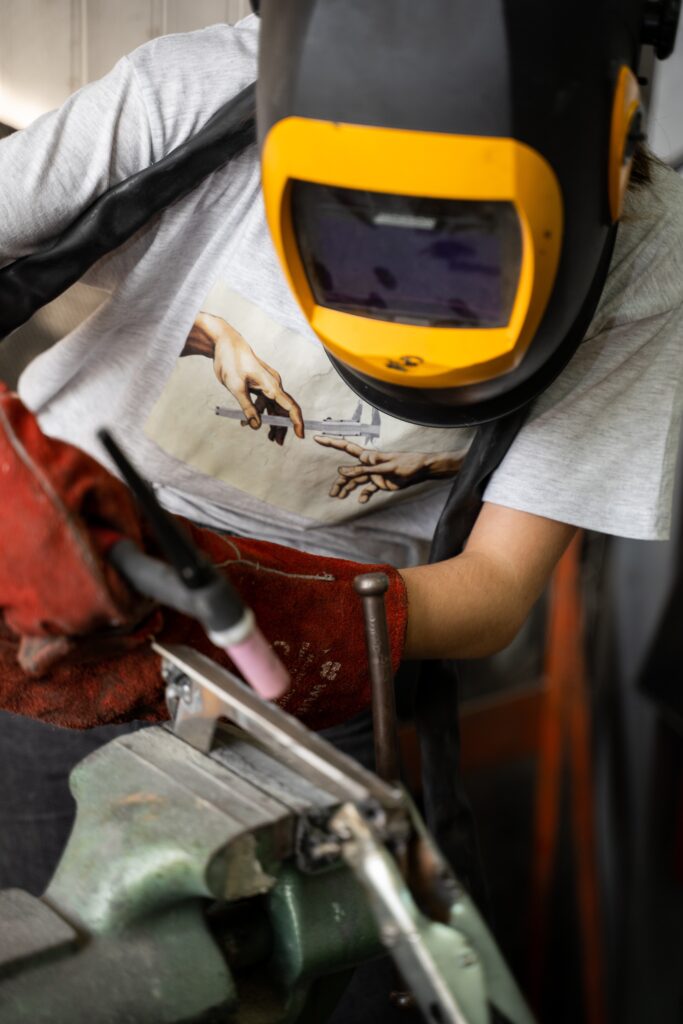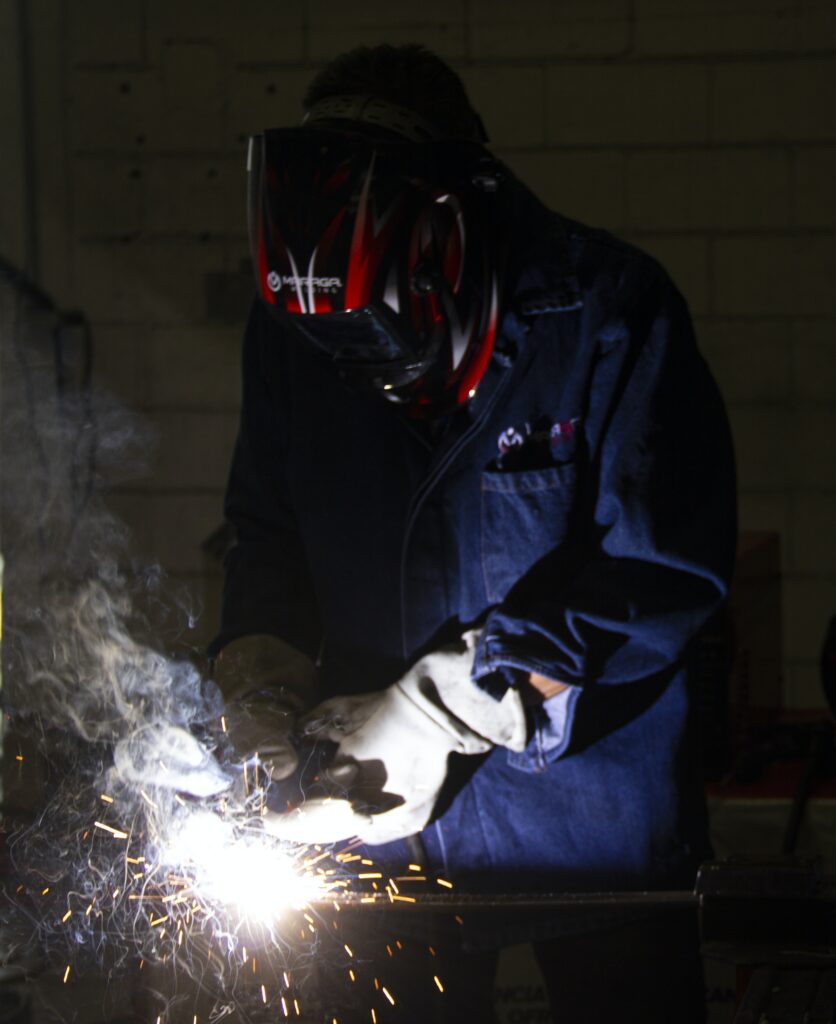Are you pondering about the earning potential in welding? This article “Do Welders Actually Make A Lot Of Money?” will provide you with a detailed outlook, which is totally unbiased. The content is detailed yet straightforward, making understandable even for those without a background in the trade. You’ll get all your questions answered right here regarding whether welders truly earn a significant income. So, brace yourself to gain enlightening insights into the financial side of the welding profession.

Understanding Welding as a Profession
Welding is a fascinating profession that requires skilled hands and a keen eye. This profession puts you at the heart of countless industries, creating the fabric and framework of our world, one bead at a time. Structurally sound buildings, reliable automobiles, sturdy bridges, all have welding to thank. But what does it mean to be a welder?
Defining the Role of a Welder
A welder’s job is to fuse metal pieces together using various tools and machinery. This may involve reading blueprints, measuring and marking work pieces, operating welding equipment, monitoring the process for safety, and checking finished work for defects. The role often requires physical strength and stamina, as well as technical expertise.
Skills Required for Welding
Being a welder is about more than just fusing metal. It requires you to have excellent hand-eye coordination, a good understanding of technical plans and drawings, and precise attention to detail. You also need to be familiar with different types of welding tools and equipment, safety protocols, and the qualities of different types of metals.
Categories and Types of Welders
There are several types of welders, each specializing in a particular welding method or material. These include MIG (Metal Inert Gas) Welders, TIG (Tungsten Inert Gas) Welders, Stick Welders, and Flux-Cored Arc Welders. Each type has its own benefits and is used for different purposes in various industries.
Examining Welders’ Earnings
So, how much do welders make? Let’s explore.
Average National Salary of Welders
On a national level, the average salary for a welder can vary greatly based on factors such as experience, certifications, and type of welding. However, according to various reports, the median pay ranges from $18 to $25 per hour.
Factors Affecting Welders’ Income
Several factors determine a welder’s income. Apart from experience and skill level, the type of industry they work in, the demand for their specific skills, and their geographic location can significantly impact their earnings.
Comparing Welder’s Income with Other Trades
When compared with other trades, welders’ income is competitive. Earnings are often on par with electricians and are typically higher than occupations such as carpenters and painters.

Analysis of Entry-Level Welders’ Salary
Everyone has to start somewhere, and welding is no different. Let’s look at what you can expect as a newbie in the field.
Estimated Starting Salary for Welders
For an entry-level welder, the median starting salary is around $16 per hour. As with any job, this can vary depending on location, size of the company, and the specific demands of the role.
Influencing Factors on Entry-Level Salary
Factors that influence the starting salary of an entry-level welder include the individual’s prior experience in the field (such as an apprenticeship), the type of training or certification they have, and regional living costs.
Comparison with Entry-Level Salaries in Other Trades
Compared to other trades, the starting salary for welders is competitive. As fresh graduates, most are placed on the same pay scale as junior electricians and plumbers.
Senior-Level Welders’ Earnings
As with most professions, welding can lead to increased earnings over time as you gain experience and expertise.
Average Income for Experienced Welders
Years of experience can significantly boost a welder’s income. On average, a senior-level welder can command an hourly wage of around $24 to $30, resulting in an annual salary that substantially exceeds the national average.
Potential for Income Increase with Experience
In welding, as with any profession, there is significant potential for income increase with experience. Mastery of specialized techniques, supervisory roles, and independent contracting can all lead to higher earnings.
Benefits and Perks for Senior Welders
Since welding is a highly skilled job, experienced welders often enjoy a slew of benefits. These may include health, dental, and vision insurance, retirement plan contributions, and even paid time off, among other perks.

Welders’ Salary: Geography Impact
There are regional differences in welders’ wage rates as well. Where you live can often impact how much you earn as the cost of living varies from state to state. Let’s have a look at those differences.
Regional Differences in Wage Rates
Wage rates for welders vary across the country. For example, welders in regions with high cost of living, such as New York and California, can expect to earn a significantly higher salary compared to those in less costly regions like the Midwest.
Highest Paying States for Welders
According to research, the highest paying states for welders include Alaska, Hawaii, and California, owing to their high living costs and the high demand for specialized welding skills.
Impact of Cost of Living on Welders’ Earnings
While you may earn more as a welder in specific states due to their high cost of living, it also means that a significant chunk of your wage goes towards maintaining a decent living standard. Therefore, the impact of the cost of living on your net earnings is a critical consideration.
Difference in Income due to Welding Specializations
Specific welding specializations can present the opportunity to earn more money than general welding positions. Here’s why.
Introduction to Different Welding Specializations
There are many welding specializations, each coming with its own set of unique skills and techniques. Some popular specializations include underwater welding, pipeline welding, inspection/quality control welding, and nuclear welding.
Which Welding Specializations Pay the Most
Underwater welding, pipeline welding, and military support welding are among the highest-paid specializations in the welding profession. These fields require unique skills, extensive training, and often involve a higher level of risk, affording higher pay.
Demand for Various Welding Specializations
Different welding specializations are in demand in various industries. Aerospace and construction industries often seek specialized welders, and the increasing need for infrastructural developments across the country ensures steady demand in the foreseeable future.
Additional Sources of Income for Welders
While a welder’s regular salary is typically their primary income, there are opportunities for additional earnings to supplement one’s wage.
Overtime and Holiday Pay Benefits
Welders often have the chance to work overtime, weekends, or holidays, which can significantly increase their income. Many employers offer overtime pay rates and holiday pay premiums as part of their compensation packages.
Profit Sharing and Bonus Structures
Some companies offer profit-sharing programs or bonuses based on individual or company performance, enabling welders to earn income beyond their standard wage.
Side Jobs and Freelance Welding Opportunities
Many skilled welders also take on side jobs or freelance projects to boost their earnings. These opportunities can allow welders to apply their skills outside their usual work environment, broadening their experiences and increasing income.
Career Advancement and Income growth in Welding
There’s a lot of room for career advancement in the welding industry, and with advancement often comes increased income.
Career Progression Opportunities for Welders
Successful welders can move into positions of greater responsibility, taking on roles such as foreman, supervisor, or inspector. Some even end up teaching in vocational schools or running their own welding businesses.
Impact of Additional Certifications and Training on Income
Additional certifications and specialized training can significantly impact a welder’s income. Certifications such as Certified Welding Inspector (CWI) or Certified Welding Educator (CWE) can open doors to career progression and better pay.
Transitioning to Welding Inspection and Its Impact on Income
Moving from welding to inspection can result in a significant boost in income. Inspectors are charged with ensuring the safety and quality of welds, and their expertise is highly valued in industries where welding plays a crucial role, such as construction and manufacturing.
Job Security and Stability as a Welder
Job security is often a significant factor for those considering a profession in welding. Let’s explore this aspect of the profession.
Demand for Welders Currently and in Future
The demand for skilled welders is expected to remain steady or even increase in the coming years, thanks in part to ongoing infrastructural developments and the retirement of older workers. Industries such as energy, construction, and manufacturing all require skilled metal workers to maintain and expand infrastructure.
Impact of Economic Downturns on Welder’s Employment
As with most manual labor occupations, welding can be impacted during economic downturns. However, because welders are relied upon in so many industries, many can find work even in uncertain economic times.
Job Diversification in the Welding Industry
The welding industry offers a wide range of jobs in various sectors, which adds to the profession’s stability. Welders can find work in industries ranging from automotive and aerospace to agriculture and construction.
Conclusion
Summary of Key Findings
Our exploration of the welding profession reveals a rewarding career path that offers plenty of room for growth and advancement. With the median pay for welders being comparable to other trades and opportunities for additional income, welding presents viable financial prospects.
Answering the Question: Do Welders Actually Make a Lot of Money?
It seems the answer to our initial question, “Do welders make a lot of money?” is a conditional yes. Welders can make a considerable amount, especially when they’ve acquired experience, certifications, and specialized skills. However, like any other job, the income and financial rewards vary based on a wide range of factors.
Considerations for Prospective Welders Considering the Profession
If you’re considering welding as a profession, bear in mind that it’s an industry that requires technical skills, a willingness to continually learn new techniques, and sometimes, physical stamina. On the financial side, wages can start small, but there’s significant potential for growth—both through advancement in the job and expansion into side projects and specializations. With demand for welders projected to stay solid, it’s a profession that offers stability and numerous possibilities for those willing to invest in their craft.
